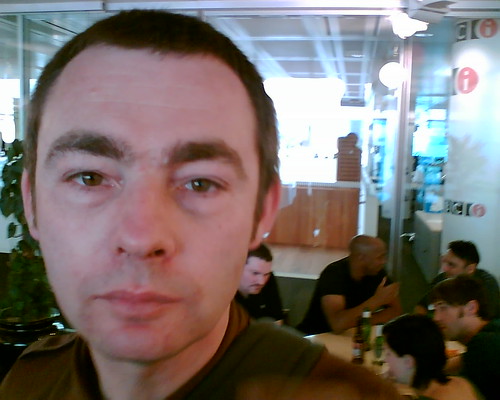Andy Griffee and BBC storytelling
There's a long piece in the BBC's internal magazine; Ariel this week by Andy Griffee (the BBC's Controller, English Regions). In the week of the (staff only) BBC's storytelling festival he poses 5 questions facing "broadcasting gatekeepers" such as the BBC and arguing that "we must find ways to ride the (internet/digital) wave or risk wipe out"
- How do we use a quarter of a million hours of local radio a year to harvest the potential of 8m listeners' stories ?
- How do we deploy the cheap technology to enable to shape these stories in the quiet thoughtfulness of their own homes ?
- How do we graft such content into our conventional television output with its godlike authorial figures and their velvet voices ?
- How do we use the anarchy of the internet and the power of the BBC online brand to seek and use these stories ?
- And what do we do to make such powerful stories cut through and get noticed amid the multimedia babel and almost limitless demand for our audiences time ?
I realise now and I should have realised it before that listeners have better stories than we do For years, newsreaders have 'pranced about' as if they know more than the people watching; as if it were their job to know everything. But the image of the all-knowing newscaster has been ripped to shreds by the sheer volume of information which is now moving around unmediated.The best approach we can take in response is to say, 'Let's try to work out what's going on together.' It would be an appalling con for me and three bleary-eyed producers to walk into our office at 6.30 a. m. on a Wednesday imagining that we know more than our five million listeners. So we pool information rather than hand it down. Bring on the 'mission to explore'.


0 Comments:
Post a Comment
<< Home